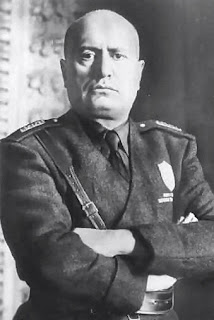Old Believer Social Teaching?
Many know about the Latin church's social teaching, as advocated by Leo XIII. In Rerum Novarum, he argued for distributism over modern capitalism and over fascism and communism. Of course, the opinions of the Latin pope are irrelevant to Old Believers, but this raises a question: Is there an Orthodox social teaching? An ideal economic, and political system? In this article, we'll explore the history and possibility of an Old Believer advocated system.
Maybe Communism; Or, was the Russian Revolution Ran on the Funds of Old Believer Capitalists?
Maybe Communism; Or, was the Russian Revolution Ran on the Funds of Old Believer Capitalists?
Credit to Starove.ru for the above image
No, of course not. It seems some Russian revisionists have gotten the bright idea that Old Believers held a vendetta against the Romanovs, and so the richest ones, such as the Morozov family, funded Lenin and the Bolsheviks.
This doesn't square with history: The Old Believers were Nicholas II's most loyal subjects due to the 1905 religious freedom decree, and when he abdicated, he was reported to have said how much he worried it would grieve the Ancient Orthodox.
Additionally, it is strange to assume that the most religious people in Russia founded an anti-religious revolution. Communism is fundamentally opposed to Christianity, and deeply oppressed its supposed funders, Kulaks being a term Lenin used to replace Old Believers, whom he despised with all his heart. 60% of factories were owned by Old Believers, and all were taken over.
Democracy, Then
Democracy is possible on a micro level. Old Believers still elect Bishops, and this is the ancient custom of the Church. Additionally, monastic communities are sometimes democratic in nature.
But on a macro, ideological level, democracy is anti-Orthodox. It was birthed in anticlericalism in France, and led to the death of many Christians. Democracy was also a product of the Enlightenment, that hive of scum that also produced nationalism and modern racism, both lies of the Devil.
Democracy is fundamentally opposed to tradition, and full democracy cannot be Orthodox, at least in my personal opinion. It is not endorsed by any Church Fathers or any Saints, or the Bible.
Fascism? No.
I retch at the thought. Some Nikonians supported fascists, as a reaction to the Bolsheviks, but this system is nationalist and usually racist, two things Ancient Orthodoxy condemns. Also, it has a tendency to cause immense human suffering and genocide.
Additionally, fascism too often furnishes support for revival of demon-worship (Paganism). It cannot be supported by an Old Believer, or by any honest and good person.
Fascism cannot be supported as an alternative to Communism, either. One cannot make a concord with evil against evil.
Monarchy, Perhaps
So maybe monarchy? Is it Orthodox?
Most of the time, when people refer to Russian monarchism or monarchy they speak of those with a nostalgia towards the Romanov absolutists of 1682-1917. In the Nikonian church, Nicholas II and his family are saints - this essentially enthrones absolute monarchy as an important feature in any Orthodox government in the minds of those allegiant to the dominant church.
Ancient Orthodox have different inclinations. After all, the Romanovs were essentially a series of oppressors and murderers who tried to destroy Orthodoxy in Russia. This is a rather broad view: both Catherine the Great and Nicholas II were tolerant of Old Believers, and Mikhail I was a pious Orthodox monarch who ruled with grace.
So absolutism is a no-go for Old Believers; after all, said absolutism enabled mass persecutions of Christians.
Mikhail I Romanov
But it may be said that a limited monarchy, with a non-integrated Church (to avoid despotic corruption of it), can be approved by Ancient Orthodoxy. Monarchy is consistently approved of in the Bible, if rebuked at times for specific monarchs.
So I think we've addressed government systems. Now for economy.
Capitalism
Savva Morozov I
The Old Believers were the most prolific capitalists in the Russian Empire. Some estimate they controlled a majority of the capital there, and were kind, giving their workers living wages and excellent factory conditions. They gave much to the poor.
Morozov, Tretyakov, Mamontov, all famous Old Believer millionaires who all worked hard for their money. They founded theatres and art galleries and patronized many artists.
But it's wrong to suggest that this makes capitalism Orthodox. After all, sometimes these alleged millionaires were simply managers of their communities' capital, and many Ancient Orthodox thrived, with Old Believers typically living better than the average Nikonian, not just rich merchants.
And remember - Christianity has an undeniable polemic against the rich. Wealth is not a virtue, but it's evil effects can be mitigated with virtue and almsgiving. Capitalism puts people in poverty, and cannot be said to be true to Christ.
Distributism?
Hillaire Belloc
Distributism is a system in which the mass of citizens severally own the means of production. It is a turn of the century origin philosophy argued mostly for by Latinist popes around that time as well as by GK Chesterton and Hillaire Belloc.
This describes the ideal society, something similar to feudalism, but in which the peasants own their own land, based entirely on Christian ideals. It is based on the preservation of property and the spreading out of ownership.
It seeks to avoid an oppressive government as well as oppressive capitalism.
In my opinion, this is Orthodox. It encourages cooperation similar to that of Old Believer communities for hundreds of years, allows a stringent work ethic and allows an individual to advance. Most importantly, it has purely Christian (if Latinist) origins.
Conclusion
In an ideal world, this is the system: People working together, owning property and being provided for. The Church dominant in people's lives, involving itself in temporal matters but removing itself when it fiddles too much, ruled by an anointed monarchy with limited power.
It's a pipe dream, but it's my pipe dream.











Comments
Post a Comment